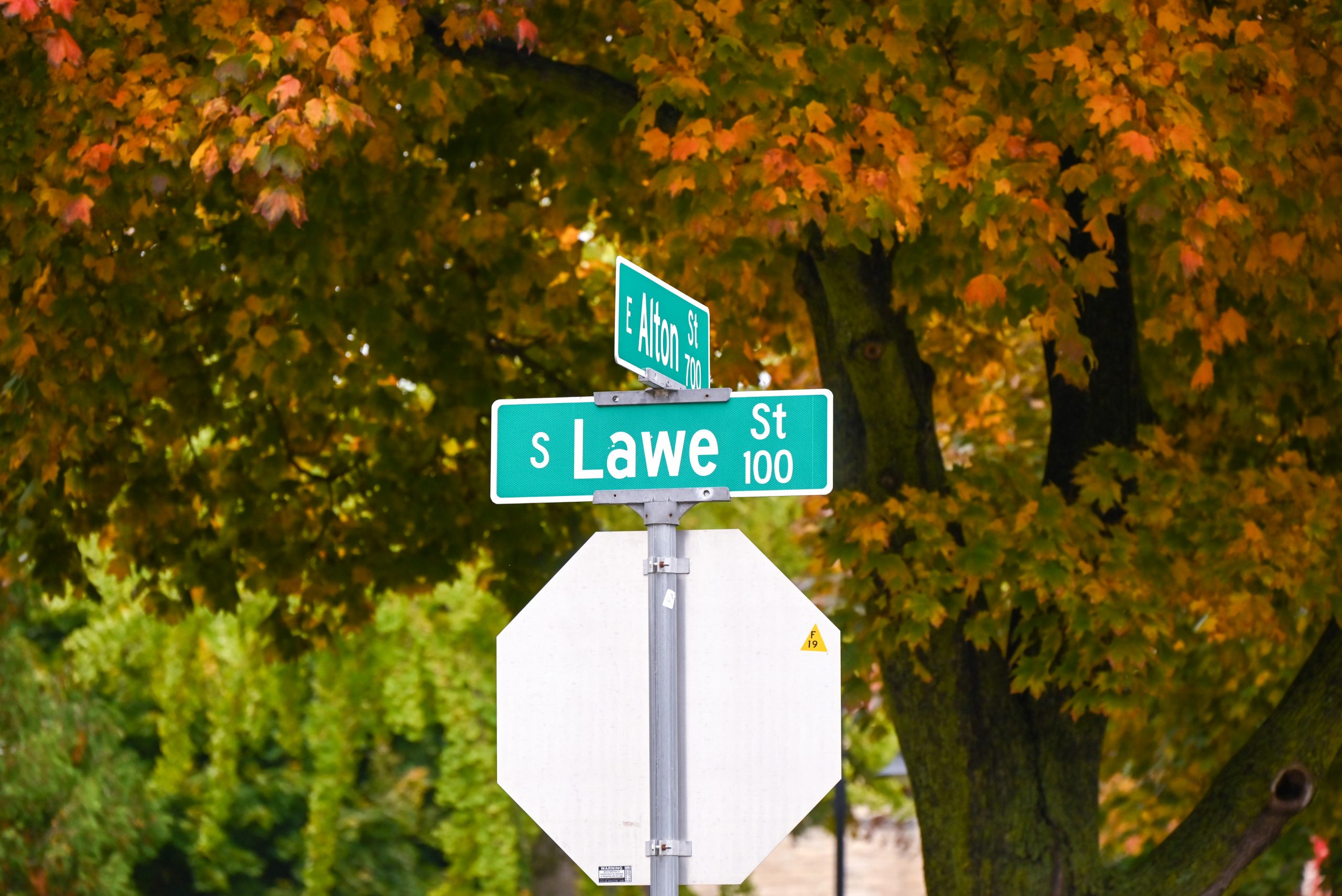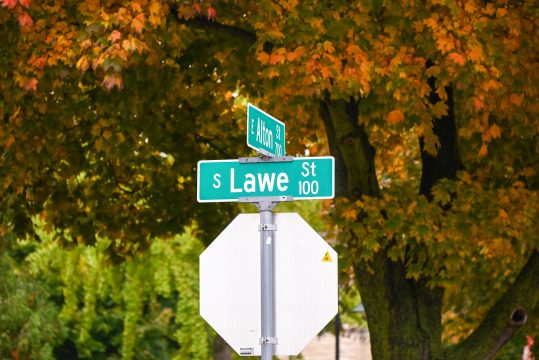The Appleton Common Council passed two resolutions on Wednesday, Oct. 18. The first resolution, submitted by District 2 Alderperson Vered Meltzer ‘04 and Associate Professor of Biology and District 4 Alderperson Israel Del Toro, reconsidered the designation of Lawe Street as a truck route. The second was a mental health awareness resolution proposed by District 12 Alderperson Nate Wolff.
The Lawe Street resolution passed in an 8-7 vote. The Municipal Services Committee had recommended the resolution for denial. When the council voted on the resolution, the “yes” votes were Meltzer, Del Toro, Wolff, Denise Fenton (District 6), Patrick Hayden (District 7), Joss Thyssen (District 8), Alex Schultz (District 9) and Chris Croatt (District 14). The “no” votes were Bill Siebers (District 1), Brad Firkus (District 3), Katie Van Zeeland (District 5), Vaya Jones (District 10), Kris Alfheim (District 11), Sheri Hartzheim (District 13), and Chad Doran (District 15).
Meltzer and Del Toro have fought in the past to allow the street to be removed as a route for trucks, claiming that their constituents had been actively voicing disapproval that the former commercial street has remained classified as commercial despite rising residential use by an active community of homeowners. These homeowners reportedly suffer from the inherent conflict of use, where an area high in pedestrians, children and homes is also used for commercial transportation. However, other alderpersons disagreed.
“I think that trucking in the city is important to the vitality of the city,” said Hartzheim. “If we deny all truck routes in our city, then we risk underserving certain populations for commercial deliveries; we risk all the things that come with commercial truck traffic.”
Hartzheim was vocal in her opposition to the resolution and voted against a revote requested by an alderperson who had cast a wrong vote. While the resolution had at first been rejected, after the revote, it passed.
Firkus said that he voted against it because he didn’t want to reroute all of the traffic to College Avenue but added that he would like to see Lawe street redesigned to be more pedestrian friendly. Alfheim, who represents Lawrence, somewhat concurred. She argued that any community with a truck route in it could make the same argument, and that the reroute could send the trucks to under-resourced communities.
Looking towards the future, Meltzer remarked that he and Del Toro have a lot of work to do to ensure that Lawe Street, as well as the rest of Appleton, will be a safe and enjoyable place for its residents, without compromising truck routes for local and non-local companies. Appvion, a prominent Appleton paper company located on the corner of Wisconsin and Lawe Street, has in fact offered to restrict the hours that their trucks are on the street to try to mitigate some of that noise and neighborhood disturbance throughout the course of discussions already, and Meltzer hopes they will be able to finalize an agreement in the near future.
Del Toro added that whole houses can rattle as trucks loaded with tons of equipment come by, which can affect property values. To him, constituents’ worries over damage to homes and the safety of their kids are all very real concerns that need to be heard by the council.
“[First, we] will be heavily involved in promoting speed mitigation measures like stop signs, lights, lit crosswalks, anything to keep our constituents safe,” said Del Toro. “And then on a broader scale, we can’t just resolve this with looking at Lawe Street alone. I’m going to propose a resolution in the very near future that looks at truck traffic throughout the city to really evaluate where we can take pieces away from residential areas and remove truck traffic lanes, so our neighborhoods are generally safer places.”
In the end, it takes a lot of effort and engagement from citizens to make large changes like this, Meltzer admitted. Although any final decision will be delayed until the grant is assured and the street has been redone, affected constituents have been monumental in their effort to make a positive change in the community, and Meltzer would like to thank everyone who has put in the time and effort to stay informed and organize.
Wolff’s resolution also passed 8-7. The resolution commits the city to improving mental health awareness, expanding and supporting mental health organizations and encouraging the state to provide more resources. The yes votes were Siebers, Meltzer, Del Toro, Fenton, Hayden, Thyssen, Schultz and Wolff. The no votes were Firkus, Van Zeeland, Jones, Alfheim, Hartzheim, Croatt and Doran. Wolff argued that the resolution was important to let people struggling with mental health challenges know that they are seen. Alderpersons who voted no argued largely that the resolution wouldn’t really do anything.
“Mental health awareness is a very important topic for me,” Jones said. “Supporting this resolution makes me feel like we as a city are puffing our chests up, patting our nonprofits on the head and saying ‘good job.’”
Similar opinions were echoed by Firkus, Alfheim, Van Zeeland, Doran and Hartzheim.
On the other hand, Hayden argued that the resolution was important even if it didn’t have a huge material impact.
“I do feel like it’s important every time we get the opportunity to tell people ‘I see you, I feel you and I understand what you’re going through,’” Hayden said. “The professionals are doing an amazing job…but I feel like this isn’t about mental health professionals, this is about the people that are struggling, and that’s who I want to shine a light on.”


